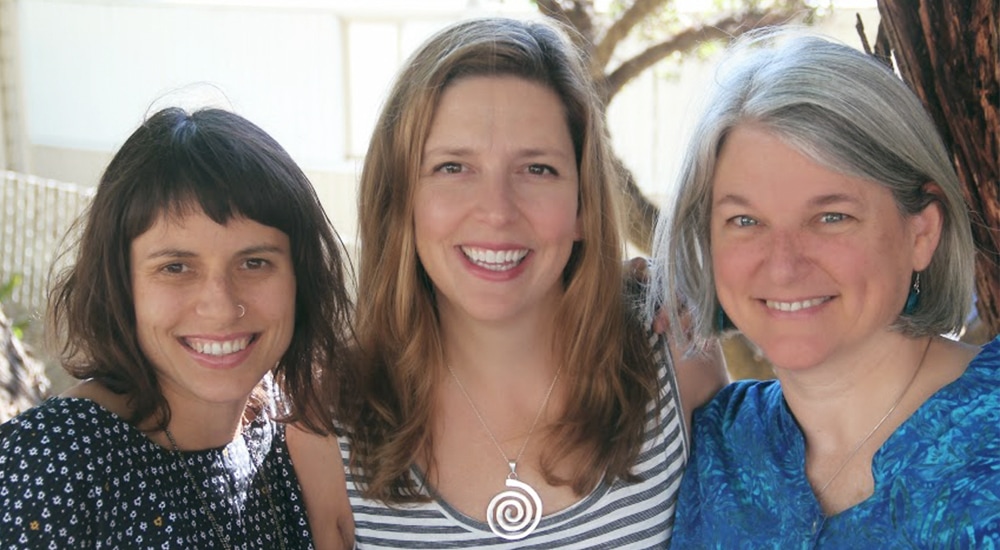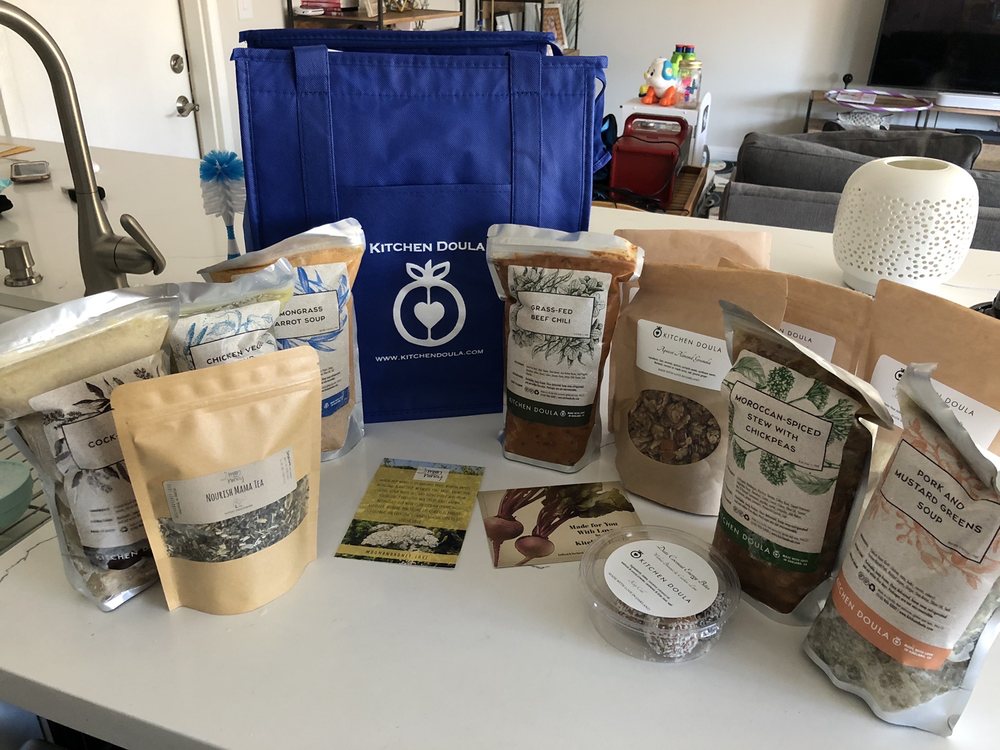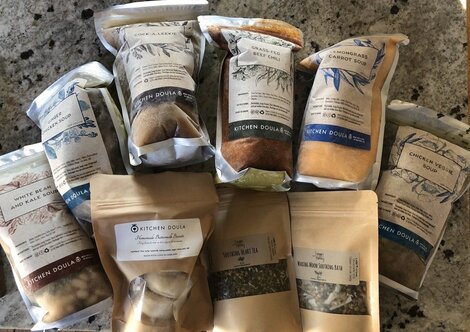
Have you wondered if encapsulation will be beneficial to you after birth?
You may be thinking that ingesting your placenta will be unsafe or won't give you any benefits. Well, no one knows exactly how your placenta will help you. The only way to really know is to try it! Many people who choose not to encapsulate after their first birth, hire me to encapsulate with their second, third, etc births. My suggestion for people is to just do it and have it. Even if it doesn't totally work for you in the way you want, it's better to have it just in case. While the scientific research is minimal on benefits, the anecdotal experiences of people who have tried it is super positive. It's hard to do a scientific study on this process because everyone responds to their own placenta so differently. Are your friends and family members making you doubt your decision? I will be linking some research here for you to share with them. Unless your friends and family members, doctors and midwives plan to provide you with extensive postpartum support-they may want to support you in doing this. Some people have reported feeling more hormonally balanced, energized, get better sleep, heal faster, bleed less and have an enhanced milk supply. When your amazing placenta has supported your baby through pregnancy, it's job is not done once you give birth to it. Choosing to encapsulate can be very empowering for many new birthing people. Your placenta belongs to you and your baby. It doesn't belong to the hospital or your family members, this choice is yours and can be so impactful on your healing. Research and Resources: Placenta– Worth Trying? Human Maternal Placentophagy: Possible Benefit and Potential Risks https://www.ncbi.nlm.nih.gov/pmc/articles/PMC6138470/
1 Comment
I recently interviewed the owner of Kitchen Doula, Tali Biale. Her Oakland based meal delivery serves San Francisco Bay Area families. This is such a great service that I hope everyone who can access, will.
Q: What inspired you to start this amazing business? A: When I first had a few friends give birth I had no idea what to get them. Diapers? Swaddling cloths? I just wasn't sure how to help. The only thing I really knew how to do super well was cook so I did! I would drop off meals when they first came home (or for one friend, I had a key and let myself in to fill her fridge while she was still in the hospital). I was amazed by how helpful it was for them to have those homemade meals. When I moved back home to the Bay Area from the East Coast 6 years ago, I knew I wanted to start some kind of food business and my friends who I had cooked for assured me that new moms especially needed good food. That's how it started and it's just grown ever since! I love that the business has allowed me to combine cooking delicious food with supporting and caring for new moms. Q: How long have you been offering this postpartum meal service to new families? A: Kitchen Doula has been in business for almost 5 and a half years.Although we've gone through some different incarnations--we used to prepare fresh meals and change the menu weekly and, as fun as that was, switching to focusing just on soups and stews has allowed us to reach more families and to deliver to a wider range throughout the Bay Area. And soups and stews are my favorite foods to make and eat, and always feel so comforting and nourishing, so I'm really happy we're focusing on those now. Q: How many people on average a month are you feeding? A: These days, we are making about 140 deliveries a month. Some of those are deliveries to the same people each week, of course, but we are so delighted to be taking care of so many families! Q: After reading your website I have a good sense about what you offer, do you offer other services as well? A: No, we just offer food! I love the fact that there are so many amazing folks working in the perinatal space in the Bay Area and each person brings their expertise, whether as a birth or postpartum doula, a lactation consultant, a placenta specialist, etc. My expertise is in cooking nourishing, delicious food so I am happy to have that be my offering to the community. Q: Do you also cook in your clients kitchens or is this all completely done in your own space? A: We use a commercial kitchen space and prepare all of our food there. I know some postpartum doulas come to cook in peoples' homes, which I think is wonderful for some families. I also know some families are very happy to have a bag of lovingly prepared food dropped at their door without any expectation to be invited in to see the baby (but of course we do always love when people answer the door with a new baby in their arms!). Q: Do you offer options for people with allergies and dietary preferences? A: Yes! Many of our soups and stews are vegan, dairy and/or gluten free and we are always open to discussing options for those with dietary restrictions. What kind of feedback are you getting from customers? A: One of my favorite things about running this business are the emails and phone calls I get from people who tell me how cared for they felt when their Kitchen Doula package arrived. Not only that, but when someone sends food to a friend through Kitchen Doula, the gift giver feels like they are truly sending their love. There is something so much more personal about sending food that was prepared with care and love, and those feelings are so important in those tender early moments with a new baby. Q: If I was a new parent and wanted to order from you, when would you recommend I start? During pregnancy, right after baby is born, or whenever? A: It's different for everyone! I often get orders from expecting mamas at the very beginning of their pregnancy journeys who are just feeling way too tired to cook. Some folks like to plan ahead and get their freezer stocked before the baby arrives and others like to place their orders once the baby is here and they have a sense of how much food support they'll need. It's very personal but our food is nourishing at every step of the way (and even for those who aren't pregnant or post-partum but just want some healthy, delicious food!). If you are interested in checking out this amazing business, reach out to them directly. Check out their packages below! Kitchen Doula Tali Biale, founder info@kitchendoula.com Food is Love, Nourish Yourself Order Now! Author: mightymoms.net
Expecting parents want nothing more than to create a happy and healthy home for their baby. The costs of infant basics like furniture, food, and clothing can be a shock to many new parents, however. The great news is that there are many simple ways to avoid needless spending while still enjoying your pregnancy and creating a welcoming home for your little one. If you find that you are already stressing about financial issues, review the below cost-cutting measures. They are all easy to implement and won’t break the bank. Celebrate your baby’s arrival in a budget-friendly style Announcing the arrival of your son or daughter to friends and family is a joyous moment during pregnancy. Wild gender reveal parties have gotten increasingly popular — and expensive — as new parents want to share the news in the biggest way possible. It includes everything from confetti displays to the use of a crop-duster airplane to release pink powder into the air as guests watch from the ground below. You can have a perfectly lovely, memorable, and heartwarming gender reveal without all these bells and whistles. Kindred Bravely encourages you to get creative: You can get cute custom-made T-shirts or simply stage a sentimental photo shoot and post the results on social media. Look to budget retailers for party favors and decorations. Learn how to make the most of coupons Coupons can help you cut costs on a variety of baby essentials, from formula to baby wipes. Diapers are among the most expensive items for parents in their baby’s first year of life. This is understandable once you learn that the average baby goes through eight to 10 diapers per day in their five months of life! Luckily, many retailers offer coupons. For example, Huggies allows you to access deals directly on their website after you register with them. To cast a wider net and make the most of coupons, browse websites that aggregate offers. They let you search for specials based on product categories and often cover diapers, formula, clothing, food, toys, and more. You can also sign up for such a site’s dedicated email list and have the latest specials delivered directly to your inbox, sparing you the process of searching through the platform. Trust in second-hand shops There are some items you should never get used for your child, such as pacifiers and breast pumps. That said, goods like clothing, shoes, and toys are completely safe for a second use. Since kids grow very quickly, these products are often barely used and completely serviceable. If you have friends, family, or coworkers with kids, ask if they might have old items they no longer need that they can pass on. If nobody in your immediate circle has children of their own, trust the internet for assistance. Websites like SwapHandMeDowns allow parents to give away, get, and trade baby goods. You can simply post on their forum mentioning the sizes you need ,and people respond if they have appropriate items available. The only detail you have to work out is shipping and handling fees. Style yourself on a budget Pregnancy preparation isn’t only about the baby. When you’re carrying, you have your own comfort to worry about as well. Stylish maternity wear allows you to feel at ease while also looking great—and it doesn’t have to cost a lot. In recent years, retail subscription boxes have become increasingly popular, with offerings such as formal gowns and office-friendly gear. Stick to this guide and you should be able to keep money troubles at bay during pregnancy. Research has shown that one in four parents face financial worries—you don’t want to contribute to these statistics. This is supposed to be one of the happiest times in your life. Staying on budget with these tips will help ensure that it isn’t marred by budgetary issues. Photo Credit: Unsplash.com I have become a mother 3 times since 2009 and each time was different. Each pregnancy was different, each birth was different and each baby was different. So was my level of readiness and support. I definitely knew more about parenthood with number 3 than with number 1, but I learned new things each time.
I always wondered why none of these things are discussed during pregnancy. I love all of my children and cherish the memories of their births and their newborn days, but there are definite challenges during pregnancy and during the postpartum period that I learned from. I learned about my abilities and the strengths and weaknesses of myself. When I was mom to my biggest, I had time for just her. No other children distracting me. I was also so unprepared for how demanding breastfeeding a newborn is. The breastfeeding class I took really didn't do a good job of conveying how much work breastfeeding would be. They had me believing that breastfeeding would come naturally and that I would lay in bed all day lovingly looking into my baby's eyes. I also thought I knew it all because I started caring for other people's children at a young age, and had worked full time as a nanny for about a decade. Then I became pregnant with my middle. I thought I knew it all. Biggest was 3 and I figured it would be easier. Well middle was a much more difficult birth and pregnancy and I was dealing with mourning the loss of my one on one time with my biggest. I had a planned homebirth for #2 and great support, but figured I could do most things myself. Well, thank goodness I encapsulated my placenta. My hormones were out of balance without my pills, and they gave me enough energy for both kids. With my littlest (#3) I was worried about not having enough time to pay attention to all three of them and worried that my then 2 year old would be jealous and would be difficult. My pregnancy and birth with #3 were easier and I have to say was probably my easiest baby, even though I nursed through pregnancy, and tandem breastfed. It was probably a combination of experience, support, information and placenta pills. Becoming a mom or parent is not easy. There are so many transitions and things to learn, but with the right support and education in advance and during-you can do it with ease! I offer classes privately and over Zoom for Postpartum Readiness, and Beastfeeding. I also support families after their babies are born! Check out my class descriptions and don't hesitate to reach out to book a class. People ask me all the time why someone would want to encapsulate or ingest their placenta. Placentophagy is the practice of consuming the placenta after birth. Many people think it's gross, but so many people are seeing the benefits and doing it again and again in future births.
What is the placenta? The placenta is a temporary organ that attaches to the uterine wall and grows with the baby. It is connected to the baby by the umbilical cord. It has 2 arteries and one vein and gives the baby all of its nutrients during gestation. The waste from the baby goes back through the umbilical cord and through the mother to dispose of. This makes the placenta a fascillitator organ, not a filter. It doesn't hold on to much. So most medications and toxins leave the placenta through the mothers body. Once it is born and the cord is cut, many new parents choose to take it home. Some choose to bury it, others choose to consume it. Doctors and nurses are taught that it is biohazardous waste and should be thrown away, but it is yours and you can choose to do what you want with it. WHAT ARE THE BENEFITS? Many people who choose to encapsulate are hoping for faster healing (the uterus contracts more quickly), more balanced hormones and moods, enhanced milk supply and less fatigue. None of these benefits are guaranteed, but so many people experience one or more of these effects. Recently, a survey was done on over 400 people asking about their experience with their placenta. 53% Enhanced Milk Supply = 34% Increase/19%^ Oversupply/Only 1.2% Reported Lower Supply 59% Faster Healing= 45% said they feel they healed faster 13% said they don't think they did 93.3% Balanced Hormones= About 81% Noticed feeling more balanced and only 5% felt out of balance 73.4% More Energy=68.2% Noticed an increase in energy/ 27% said it stayed about the same About 76% of people surveyed said they would likely encapsulate again See Survey to read specific experiences* What Are The Risks? The risks are minimal if you are hiring a professional. There are many people out there encapsulating now which is awesome! However, parents need to hire the right person. Anyone can go online and watch a you tube video and figure this out. But without proper knowledge of how to keep clients safe, there can be risks involved. Making sure that the person you are hiring has a current bloodborne pathogens certification and food safety training, is a great start. Asking them questions like: How do you make sure that your reusable equipment is cleaned properly from client to client? Where do you encapsulate? How long have you been encapsulating? Or where did you learn? Don't assume that because your midwife or doula encapsulates, that they were properly trained. Encapsulation is not taught in doula training or in midwifery school. Most people who encapsulate professionally, really want you and your baby to be healthy and well and work hard to follow safe standards. When can a placenta not be encapsulated? There are very few contraindications for placenta encapsulation. The most common reason is if mom and/or baby had a confirmed infection. Having a fever in labor can be a sign of infection, but fever does not always equal infection. Having a low grade fever can be a side effect of an epidural. If she has a high fever and is being treated for infection, it is not advised to encapsulate and ingest her placenta. This doesn't mean that it needs to go to the lab. It belongs to her and she should fight to take it home if she wants to bury it or have another ceremony with it. Often, people are told that the placenta had meconium on it and it is not able to be consumed. This is false. If the person preparing the placenta has proper training, they will know how to prepare the placenta properly to get rid of any potential bacteria. Once a placenta is sent to a pathology lab in the hospital, it is not safe to consume. Don't let it go so quickly! Advocate for yourself or have your support person or partner advocate for you! The best way to know if this service is safe for you, is to hire a professional. A professional is someone that can tell you how they learned, where they process, and how they prevent cross contamination from client to client. Encapsulating in the clients home is NOT always a safer option. Be cautious of people who tell you that it is not legal or not safe for the specialist to encapsulate in their own space. 1. What are the benefits of eating placenta after birth?
There is limited scientific research of the benefits of consuming placenta, however, people who choose to do this post birth, are hoping to balance hormones, possibly enhancing their milk supply, increasing energy and wanting to minimize the symptoms of baby blues. People are trying to heal better and get to bond with their babies! No benefits are promised and anyone who tells you that you will have more milk, you won't get Postpartum Depression and You will lose your baby weight-is selling false claims and you should be cautious of their intentions, training and process. 2. Why is placenta encapsulation becoming so popular? Placentophagy has been around for centuries in some form or another. Encapsulated placenta pills have increased in popularity in the past decade or two because more and more new parents are after the possible benefits, and pill form is much more palatable for most new parents than eating the placenta in it's raw state. Anecdotal evidence is not science based and it can be argued that there are no proven benefits, but many people are willing to try something that can help them. 3. DO we need scientific research? No. We really don't need scientific research to know that placenta pills have helped hundreds of thousands of new parents. It would be nice to have some solid evidence that it works, but nothing is 100%. There is also no real way to get solid proof that placenta consumption will work for everyone. 4. Is research even attainable? Every placenta is different, and every postpartum person is different, including their needs and goals, support and circumstances. There are experiments being done right now on the hormonal content of placenta before heating (steaming and dehydrating vs. just dehydrating). Research has also been done on the iron content of placenta, although in that study, the placebo was dried beef product which doesn't tell us much about the iron levels of someone not consuming an iron rich product. 5. I heard, or read an article that placenta pills can cause lowered milk supply, is this true? No. Across the board, most people consuming placenta pills notice an increase in milk supply and even over supply. Low supply is found in about 1.2% of people surveyed. This rumor was first started by Dr. Jack Newman and most recently be a Lactation Consultant in Northern California. In her blog post, she claims that her clients who consumed their placenta, all had low supply and blames it on the placenta. Let's explore this claim a bit. She is a lactation consultant, working in a clinic and people are going to her with issues, most with low supply. Instead of getting their permission to include them in her anecdotes, she makes claims that their low supply was due to their pills. She dismisses all the positive claims that she references. There is a great article written as a rebuttal to her article taking apart her claims. You can read it here. If you want to encapsulate be prepared to be met with negative anecdotes and opinions from friends, family members and even medical providers. Remember, this is your property and your choice. I recommend that anyone who wants to try it, just tell the medical staff at your birth that you plan to take it home. So you are pregnant. You took your childbirth prep class, your breastfeeding class and had a baby shower. You have a birth plan, a doula that you love and you even booked someone to encapsulate your placenta. Your goal is to breastfeed as long as possible, but because you have heard from so many friends and family how hard it was for them, you aren't feeling too confident.
STOP. RIGHT. THERE. The main components to SUCCESSFUL breastfeeding are: Education, Support and Confidence Some people do have physiological issues that cause some real breastfeeding problems. But not as many people as you would think. Only about 2% of nursing people, actually have a low supply. Some of the problems that new parents have with breastfeeding can be avoided, or at least corrected. As a lactation educator and counselor, a postpartum doula and a placenta specialist- I listen to many new breastfeeding people, and what their problems are. I hear a lot of the same common issues and hope to raise some awareness of those things here. 7. Lack of Good Lactation Education This isn't your fault. Our medical system has taken on the responsibility of teaching you how to feed your baby, when they don't really know how. Even if you take a good lactation class, when you go to use what you learned, you suddenly have a wiggly baby who may not latch properly or may fuss at the breast. What needs to be taught prior to birth is confidence, patience and understanding. Breastfeeding is only an instinct for BABIES. We need to learn how by watching others do it. 6. Lack of Support at Home Many of us don't live near family, don't have a proper village around us and don't know anyone who has successfully breastfed. Maybe your partner wants you to breastfeed, but doesn't know how to support you. Make sure you are really clear about your breastfeeding goals with the people around you and don't let people discourage you. Trust that you can feed your baby. If you actually cannot, make sure you get help from someone with experience and education. 5. Lack of Good Support in the Hospital Do you know how much time labor and delivery nurses, postpartum nurses, pediatricians and OBGyn's spend learning about breastfeeding? Maybe a day. They are not the experts. Yet we look to them right after we give birth to guide us. We put baby on a schedule from the first hour they are born. Learn everything you can in advance from a teacher that is educated. Try multiple teachers, and multiple classes. Find someone who is confident in your body's ability to nourish your baby. Humans have been feeding their baby humans forever, you can do it too! If you truly have a problem, get help! 4. Stress Stress is a huge contributor to low supply. When your body is stressed, you will produce less and your baby will sense your stress and may struggle with nursing as a result. Try to slow down, deep breathe with your eyes closed while you nurse or pump. 3. Not enough time off work You were really looking forward to your maternity leave. You figured 6 or maybe 12 weeks would be plenty of time to bond with baby and may even feel like a vacation. You didn't realize that you would fall in love with your baby, how hard breastfeeding would be-or how much you love it, or how long it would take to heal. Now you have to go back and you feel like you were just getting into a rhythm with baby. You find yourself needing to pump, on top of feeding your baby and putting them in the care of someone else. Unfortunately, or society doesn't really encourage new moms to stay home longer for better bonding and going back to work many times-hinders milk supply. 2. Myths and Misconceptions You have heard that breastfeeding is not supposed to hurt, this is not true. In the beginning it hurts a lot. Imagine hearing that it is not supposed to hurt. Will you keep going if it does? You may think there is something wrong with you. There are many myths out there about breastfeeding that end up standing in the way of establishing a healthy breastfeeding relationship. 1. Fear Fear that it won't work Fear that you won't have enough milk, or baby won't be satisfied Fear that what happened to you friend, sister, mother, cousin-will happen to you Fear that alcohol can get into your milk and you will have to pump and dump Fear that it will hurt Fear that if it hurts, there is something wrong Fear of someone telling you not to do it in front of them, or being shamed in public. Fear causes stress, which hurts supply and kills confidence. Surround yourself with those who support you and your efforts to breastfeed. Try to create a village of other parents, go to La Leche League meetings or other new parent support groups and know that this is a learning opportunity. You can do it! Reach out for support bayareaplacentaservices@gmail.com an interview We decided to interview the San Francisco Birth Center this month. The three midwives who own and operate the birth center are Julie Birdsong, Nancy Myrick and Sara Van Acker. You can read about them more here. The SF Birth Center opened in 2016 and is located at 2300 Sutter St. Suite 301 San Francisco, CA 94115. Having multiple birth options in the city is essential to providing pregnant people with the freedom to give birth how they want. If you don't know what makes a birth center special, you may not even consider it! My own relationship with my midwives was amazing. I really believe that more people should know how intimate your experience can be with midwives in a birth center. If you are considering a birth there, you should go check them out! Q: What do you feel are your particular strengths as a Team of Midwives? A: The three of us come from very different backgrounds. Nancy spent many years running her own home birth practice, Sara has worked exclusively in birth centers, and I come from a hospital background. Our different perspectives have really enriched our team and influenced everything from what kind of chairs and tubs to purchase to how we structure our prenatal visits. Q: What's the biggest misconception people have about what you do? A: There are so many! I often get asked, "So where do the women go to have their baby?" We're a comprehensive midwifery practice, which means we do prenatal care, birth, and postpartum home visits. Q: What's the best piece of advice you have for moms wanting an out of hospital birth? A: Eat a balanced healthy diet, exercise regularly, start a mindfulness practice, hire a doula and find a midwife that will support the birth you want to have. Q: What's the most challenging part of your job? A: I get so close with the families towards the end of pregnancy, when I'm seeing them every week. Then we go through the labor and birth together. I love the intimacy that develops, and then it's really hard to say goodbye after the last postpartum visit! I want to keep hanging out and watching their babies grow. Q: When you meet with potential clients, how do you know if they are the right fit for your practice? A: We ask a ton of questions! We go through an extensive health history just like any OB provider, but then we do even more and go even deeper. We give families a birth questionnaire to get to know them more deeply and understand their values and cultural context. Q: What other types of services do you provide besides midwifery? A: We partner with Natural Resources to offer educational classes, we host a Breastfeeding Circle on Fridays with a lactation consultant, and a New Parent's Group every Wednesday. New Parent's Group is our way of not having to say goodbye after 6 weeks. Q: How do you see midwifery growing in San Francisco and the Bay Area? A: The Bay Area is resource rich with midwives in hospitals and home birth practices. More and more hospitals are adding midwifery services, which I'm thrilled about. In 2016, both San Francisco Birth Center and Marin Family Birth Center opened. Midwifery is growing and people are more and more aware of midwifery care as an option for their birth. We hope to pass a bill this year that will remove barriers for midwives to practice and will increase the ability of midwives to care for birthing families in less resource dense places than our own. If you love a midwife, or think midwifery care is a good thing, take a moment to help us pass AB 1612. Q: What is the benefit to having a Birth Center Birth vs a Home Birth or Hospital Birth? A: It's a welcoming, safe and intimate place. There are no alarms or extra people around. We have big beautiful rooms specifically designed for movement in labor. We are the only place you can go in SF to have a water birth. Although some of the hospitals have tubs to labor in, they prefer to have the birth happen on the bed. Home birth is very similarly intimate, however in SF so many people have living situations that don't feel ideal for home birth, whether it's a too small apartment with no bathtub or not enough space for a rental tub, concern about close neighbors, or distance from a hospital. Both home birth and hospital birth are great options, but we are thrilled to be able to offer this third option for families who want an out of hospital birth. Q: How many pregnant people do you take on per month? A: We are currently taking 12 clients per month. Next year, we plan to expand to 15-18 per month. Q: What kind of prenatal and postpartum care do moms get with you? A: Our first three visits are an hour long so that each midwife can get to know the family and establish a relationship. After that, we move into the group prenatal model with one on one visits as needed. We meet monthly in the second trimester and twice a month in the third trimester. During a group session, each client meets privately with the midwife, followed by a facilitated discussion on a variety of topics relevant to the stage of pregnancy. We invite guest speakers such as pediatricians, lactation consultants, and pregnancy exercise specialists to enrich the discussion. Prenatal groups offer a rich opportunity to share experiences and resources, to learn from one another, and to create a long-lasting community of support. Our postpartum care centers around family well-being and early transitions in the home environment. We want our new families to stay at home and enjoy the first few weeks. Our visits include well baby and well mother assessment as well as extensive lactation support. Home visits for postpartum care are done two to three times in the first week, followed by office visits at two weeks and 5-6 weeks. For more information or a tour, click below! |
AuthorShawna is a mom of 3 and has been working with children and their parents since 1999. Just honest information to prepare you and provide you with love and support. Owner and operator of Bay Area Placenta Services since 2012 Archives
August 2022
Categories |
San Francisco, SOUTH SAN FRANCISCO, DALY CITY, PACIFICA, MILLBRAE, BRISBANE, BURLINGAME, REDWOOD CITY, HALF MOON BAY, BELMONT, WOODSIDE, MOUNTAIN VIEW, HILLSBORO, SAN CARLOS, SAN MATEO, MENLO PARK, PALO ALTO, SUNNYVALE, OAKLAND, BERKELEY, WALNUT CREEK, MARIN AND MANY MORE!















 RSS Feed
RSS Feed